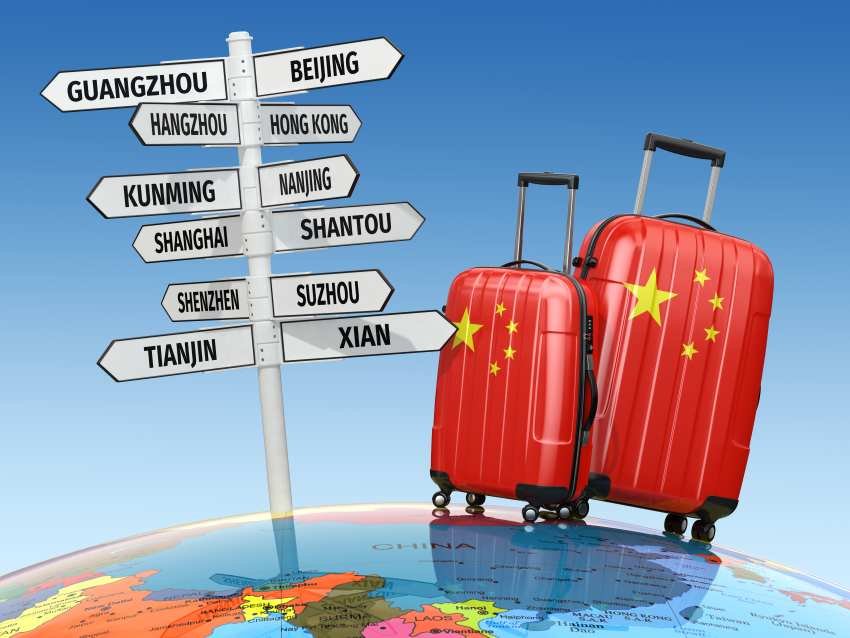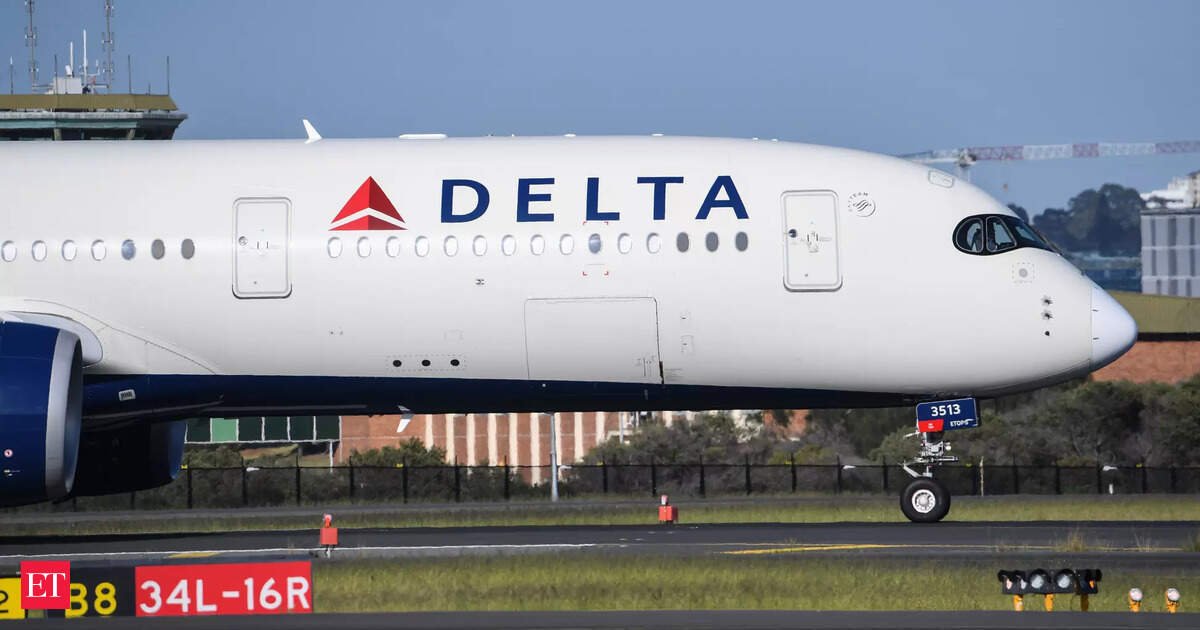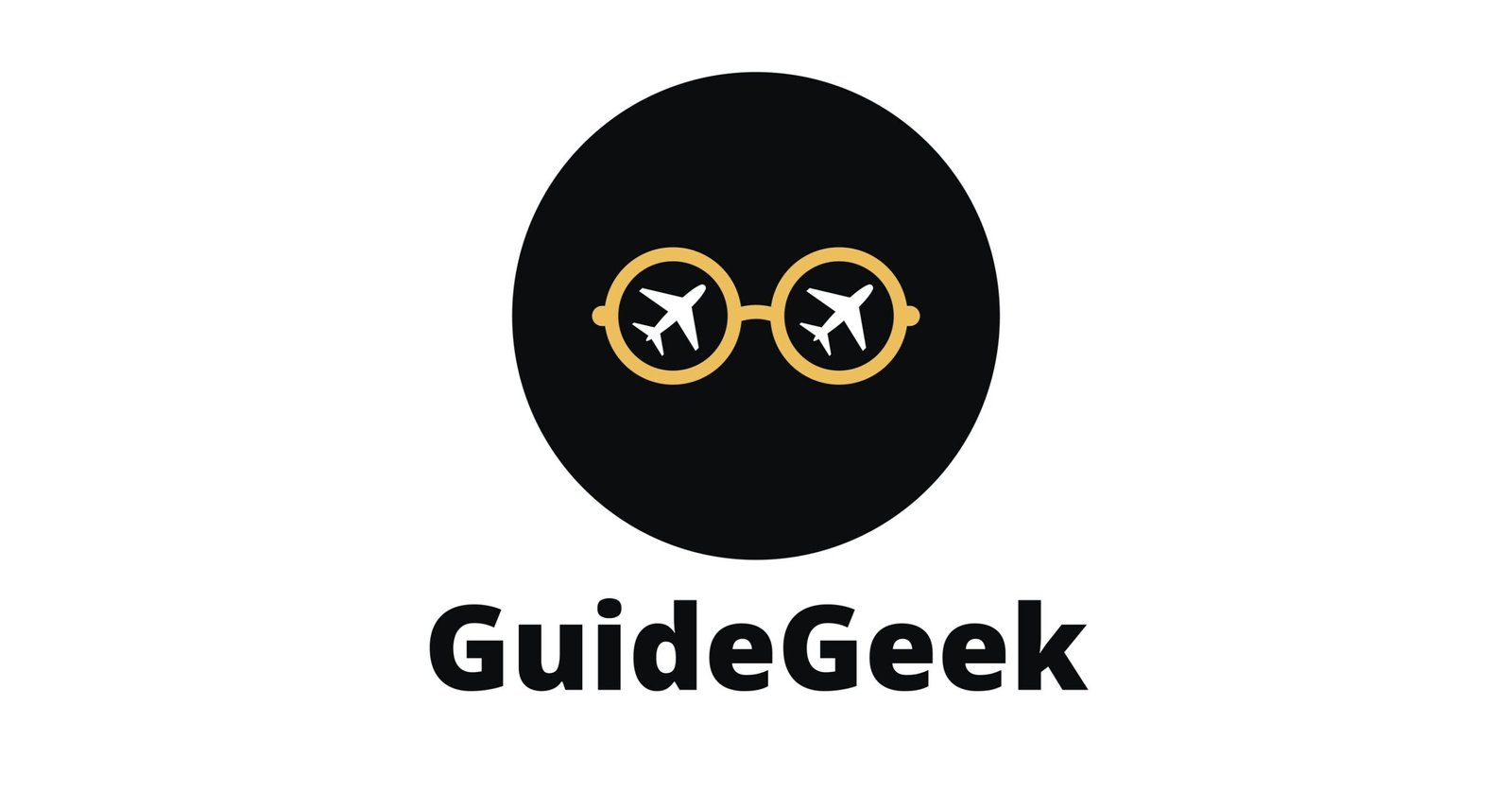AI in Travel
ITB China 2025-26 Travel Trends Report Highlights Demographic Shifts, Bleisure Boom, AI’s Role and Rising Inbound Travel Driving China’s Tourism Expansion: Latest Updates Only For You

Tuesday, August 5, 2025
China is once more flexing its muscles as the tourism industry changes across the globe. The latest ITB China Travel Trends Report for the years 2025 and 2026 focuses on the emerging factors shifting the country’s travel patterns, providing a thorough analysis of travel trends, population changes, the growing influence of artificial intelligence, and the evolution of travel habits.
Together with industry specialists and leading travel agencies, the report analyzes how changes in consumer behavior, technological innovations, and spatial tourism policies are merging to shift tourism in China. It also highlights the steps businesses globally should implement to capitalize on the revived interest stemming from one of the largest travel hubs.
China’s Outbound Travel Demographics
An essential centerpiece of the report is the changes in the demographics of China’s outbound travel market. Outbound travel is primarily driven by individuals born in the 1980s and 1990s, and this group now accounts for nearly 70% of those traveling abroad. This older segment of the younger generation is more tech-savvy and values experiences, and now seeks more flexibility, customization, and deeper engagement with various forms of travel.
Alongside this younger wave is the new phenomenon of “active seniors.” The 100 million Chinese seniors aged 60 or older are now spending their money on international travel. These travelers are projected to exceed spending of over 1 trillion CNY during 2025, indicating a massive new shift in the global economy. These changes also signify an increase in the amount of services provided to seniors and the younger generation. To put this in simpler words, people from both ends of the age spectrum are now wanting to travel and spend money.
Millennials and Gen Z travelers are unmistakably on the lookout for social media fueled adventures and authentic experiences. While older travelers prefer comfort, wellness, and safety while traveling. This mix of both younger and older travelers offers global tourism a chance to create flexible travel packages and tiered experiences for everyone.
Rise of Personalized and Emotionally Driven Travel
As noted in the report, emotionally fulfilling, and lifestyle-oriented travel is on the rise indicating a the moving away from rigid group tours. The rise of emotionally fulfilling travel goes in hand with a greater connection with cultures and nature. Chinese travelers are increasingly showing liking for things like food trails and other in depth cultural workshops. The message is clear, no matter what age, travel is increasingly personalized and meaningful.
The need for personalization is already shifting industry behavior. Over 80 percent of travel businesses offer customized itineraries. However, nearly 50 percent still offer traditional seat-in or small group tours. This mix of flexible, high touch and low touch service models paired with legacy systems is what marks the current phase of the market.
Reconciling traveler independence with logistical challenges such as language barriers, time constraints, and visa restrictions remains a hurdle. Those who can overcome practical hurdles in delivering customized travel, personalized service, and effortless travel will define the next era of travel innovation.
The New Hybrid Travel Model
With advances in technology, a new hybrid travel model is being adopted. This model incorporates the self-sufficiency of self-guided travel with the structure of organized tours. It provides independence to travelers without sacrificing convenience.
For instance, modular itineraries, app-guided tours, and AI-generated personalized travel recommend tailored experiences to the growing use of local concierges, destination ambassadors, and immersive mobile content as local guides. This shift to traveler empowered design demonstrates the agile nature of modern travel.
This model also benefits destinations which lacked the infrastructure for traditional tours. These regions can now appeal to independent travelers and design customized services using scalable digital systems.
Bleisure Travel: Where Business Meets Exploration
Business trips are no longer a one-way street to attend a conference and return home. A major trend identified in the report is the increase in bleisure— a fusion of travel and leisure. About 80% of the respondents are in consensus this segment is poised to grow, particularly where companies are investing in the employee experience and team member well-being.
The shift of corporate travel is concentrating more on value creation than cost-cutting. Business destinations and venues are now required to provide unique cultural, leisure, and wellness offerings along with official business services.
Changes in this direction shape the way companies design retreats, meetings, and incentive trips. Family vacations are termed ‘workations’ when extended to include family time, which is now common, and is a welcomed trend. In the near future, venues that offer conference facilities alongside the local unrivaled experiences will have a clear advantage.
AI in Travel: Opportunities and Allure
AI is one of the forces behind the transformation in the travel sector. Over half of the travel businesses surveyed claim to already implement AI solutions. Its application covers personalized product recommendations and itinerary builders to customer support AI and market prediction analysis.
AI technology is changing the travel sector for the better, especially for Chinese international tourists, by providing services like AI-assisted translations, smart routing, and adaptive content. These services lessen the burden international travel poses due to language and cultural challenges.
AI technology still has to deal with the challenge of making sure services that focus on humans are kept. The human touch is essential, for segments that deal with luxury and experiences, for services that are warm and nuanced. The focus should be on using AI technology to improve personal service, and not the other way around.
China’s Inbound Tourism: A Sector on the Rise
The news is full of stories regarding the outbound tourism, but inbound tourism is on the rise too. Increased international arrivals is spurred on by restoring air capacity, visa policies, and the enhanced infrastructure of the destinations. In other regions of China, the preparation enhancement includes multilingual signs, transit systems, and specially designed experiences for international tourists.
International tourists to China are exhibiting the same trends as outbound Chinese travelers. These travelers are showing more interest in authentic experiences, depth of the culture, and less popular places. The FIT traveler trends are influenced by mobile applications, social media, and user-generated content.
In addition, legacy source markets are being joined by new markets. The response time of tourism boards and travel operators to detect and act on signals of demand will be critical in determining who captures the next wave of inbound growth.
Reimagining the Tourism Ecosystem
The report, in the wider context of the global tourism ecosystem, sees the evolution of travel in China as a mark of the transformation China is causing in the ecosystem. From growth driven by outbound travel by millennials and baby boomers to AI service, and from new market activity to a blend of business and leisure, China is as much an originator as it is a responder.
To maintain an edge, global destinations, tour operators, and travel tech players need to redesign their engagement strategies. It is also apparent that effective travel and tour marketing is more than a mere default to offering bundle packages. It is focused experiencing crafted around lifestyle, identity, purpose, and personal tailored interactions.
As travelers are not just seeking to engage in sightseeing and as businesses are looking to offer better value and a lower volume, the next evolution of tourism will be directed by meaningfully innovative strategies that are swiftly adapted to changes.
Travel and Tourism Outlook: Upcoming Directions
The next phase of travel expansion in China will simultaneously present opportunities for tourism across every vertical of travel. Domestic service providers will have to deal with more nuanced demand in the form of tiered and differentiated travel. Global destinations will have to rethink how they interface with the Chinese and build cultural bridges to welcome and engage with them more holistically.
Technology will be the bringer of desire and channel to demand delivery, though it must be paired with authentic travel experiences to be effective. AI will only have paramount efficacy if it draws from cultural intelligence and human intelligence design.
The demographics will still be in continual flux. There will be a shift in the the global youth population that favors cause-centric travel. The older population will demand comfort and added security measures. Corporate fliers will look for seamless and purposeful travel that support wellness. All of them will expect in their travel speedy and experience driven servic, hyper-personalization, and a bespoke itinerary.
The key message is tourism leaders need to flex, adapt, and diversify their offerings while maintaining the core of what their business stands for. China tourism’s future is not simply recovery, but a redesign blending data and empathy, automation and authenticity, and a global and local perspective.During this period of global uncertainty and change, the travel sector in China is not just recovering, but is also transforming at a breathtaking pace. The ITB China Travel Trends Report offers a glimpse of future developments and showcases the change that is happening in the sector because of the travelers. It encapsulates the journey from outbound to inbound tourism, the use of AI, the shift to personal interactions, and purposeful and intentional innovation in travel.
AI in Travel
Air Travel Pricing: Delta’s AI fare strategy: Cheaper flights or high-tech price hikes?

How it works: AI-powered dynamic pricing
Delta’s AI system, developed by Israeli startup Fetcherr, analyzes a wide range of data in real time such as demand trends, market fluctuations, booking pace, and competitor pricing. Rather than using static fare charts, the AI suggests optimal prices that can adapt instantly to changing conditions.
Delta President Glen Hauenstein called it a “reengineering” of pricing science and noted early trials have led to “amazingly favorable unit revenues,” a metric used to gauge profitability per seat.
Concerns over fairness and transparency
Despite Delta’s optimism, the move has sparked concern among lawmakers and consumer advocates. Senators Mark Warner, Richard Blumenthal, and Ruben Gallego sent a letter to the airline questioning whether AI driven fare decisions could lead to “surveillance pricing.” Their concern: that AI might use personal data to charge individuals based on their perceived willingness to pay.
Delta responds: No personal data used
Delta has firmly denied using personal information to set prices. In a statement, the airline clarified that it does not use browsing history, financial details, or customer profiles. Instead, pricing is based on anonymized market data and traditional travel factors like origin, destination, date, seat class, and refundability. “All customers have access to the same fares,” a Delta spokesperson emphasized.
A broader trend in air travel?
Industry analysts suggest this is just the beginning. As airlines compete for profitability in a volatile market, many are likely to adopt AI tools to gain an edge. While dynamic pricing isn’t new, the speed and granularity offered by AI raises concerns about fairness and transparency.Consumer rights groups are keeping a close eye on the issue. A new bill in Congress, called the Stop AI Price Gouging and Wage Fixing Act, seeks to ban the use of consumer profiling in pricing and could impact how AI tools like these are used in the future.
FAQs
Q1. What is Delta’s AI pricing system?
A1. Delta is using artificial intelligence to set ticket prices based on real-time market data. The system is designed to optimize fares depending on demand, competition, and booking trends.
Q2. How could AI-based pricing affect travelers?
A2. Travelers may see more frequent changes in fares based on demand and timing. It might get harder to know when you’re getting the best deal.
AI in Travel
New York City Launches New AI Travel Guide

Travelers heading to New York City now have one more tool in their arsenal to help them experience the city, an AI chat platform called Libby, short for Liberty.
The new AI tool, available on New York City Tourism + Conventions’ website on the lower right-hand side, along with the city’s official Instagram and WhatsApp, is available in 60 different languages and will provide quick answers to any travel or tourism-related questions about the city.
The responses travelers receive are personalized with extensive data from the tourism organization.
“We’re pleased to unveil Libby, the official AI chat platform for exploring New York City,” says Julie Coker, president and CEO of New York City Tourism + Conventions. “As we gear up for America 250 celebrations and the 2026 FIFA World Cup, we’re proud to offer this free, innovative tool in 60 languages that empowers global visitors to craft unique itineraries and discover unforgettable experiences across all five boroughs.”
New York City will also promote Libby at 4,000+ LinkNYC screens at transit stops. Libby was created in partnership with GuideGeek AI technology from Matador Network.
For the latest travel news, updates and deals, subscribe to the daily TravelPulse newsletter.
Topics From This Article to Explore
AI in Travel
A New AI Travel Genius for Visitors Powered by GuideGeek

NEW YORK, Aug. 5, 2025 /PRNewswire/ — Travelers visiting New York City can now rely on Libby, an AI travel genius that provides instant responses to any travel or tourism questions about the five boroughs in 60 languages. Libby is an initiative of New York City Tourism + Conventions, the official destination marketing organization and convention and visitors bureau for the five boroughs of New York City, and leverages GuideGeek artificial intelligence technology from Matador Network.
“We’re pleased to unveil Libby, the official AI chat platform for exploring New York City,” says Julie Coker, president and CEO of New York City Tourism + Conventions. “As we gear up for America 250 celebrations and the 2026 FIFA World Cup, we’re proud to offer this free, innovative tool in 60 languages that empowers global visitors to craft unique itineraries and discover unforgettable experiences across all five boroughs.”
Libby, short for Liberty, assists visitors, or locals exploring another borough, with tailored travel tips and itineraries, connecting people to local businesses, attractions and cultural experiences. The personalized, real-time responses are generated by AI trained on extensive data from NYC Tourism, coupled with over 1,000 integrations for travel information from GuideGeek’s award-winning technology.
The launch of Libby follows the success of Ellis, the first meetings and conventions planning artificial intelligence chat platform created for business event professionals, launched by NYC Tourism and GuideGeek earlier this year. The tool doubled traffic to NYC Tourism’s meeting website within the first month. Libby provides a broader consumer tool for travelers of all sorts.
“It is absolutely impossible to do or see everything in New York City, even if you visit often or live there,” says Matador Network CEO Ross Borden. “Libby helps visitors and those exploring a new corner of the city instantly find restaurants, activities and hidden gems that really align with their interests and preferences.”
To access Libby, travelers can visit nyctourism.com and click the chat icon in the bottom-right corner. They can also connect with the AI on WhatsApp or Instagram to ask questions and receive tips on the go while exploring the city. In addition, 4,000-plus LinkNYC screens at transit stops will promote the AI to visitors and locals.
About New York City Tourism + Conventions
New York City Tourism + Conventions is the official destination marketing organization (DMO) and convention and visitors bureau (CVB) for the five boroughs of New York City. Our mission is to invite the world and energize the City, building equitable, sustainable economic prosperity and community through tourism for the mutual benefit of residents, businesses and visitors. For all there is to do and see in New York City, visit nyctourism.com.
About Matador Network
Matador Network is the world’s No. 1 media brand for modern adventurers and creator of the award-winning AI travel genius GuideGeek. With more than 16 million followers across social media, Matador has become a leading travel brand through its production of article features, city guides, creator-first content and original videos. Matador is the top-ranking travel brand on TikTok and its videos are viewed more than 140 million times per month. It has content distribution deals with destinations throughout the world and major brands in the travel industry and beyond. matadornetwork.com
Media Contact:
Jason Simms
860-526-1555
[email protected]
SOURCE Matador Network
-

 Brand Stories2 weeks ago
Brand Stories2 weeks agoBloom Hotels: A Modern Vision of Hospitality Redefining Travel
-

 Brand Stories1 week ago
Brand Stories1 week agoCheQin.ai sets a new standard for hotel booking with its AI capabilities: empowering travellers to bargain, choose the best, and book with clarity.
-

 Destinations & Things To Do2 weeks ago
Destinations & Things To Do2 weeks agoUntouched Destinations: Stunning Hidden Gems You Must Visit
-

 Destinations & Things To Do1 week ago
Destinations & Things To Do1 week agoThis Hidden Beach in India Glows at Night-But Only in One Secret Season
-

 AI in Travel2 weeks ago
AI in Travel2 weeks agoAI Travel Revolution: Must-Have Guide to the Best Experience
-

 Brand Stories1 month ago
Brand Stories1 month agoVoice AI Startup ElevenLabs Plans to Add Hubs Around the World
-

 Brand Stories4 weeks ago
Brand Stories4 weeks agoHow Elon Musk’s rogue Grok chatbot became a cautionary AI tale
-

 Brand Stories2 weeks ago
Brand Stories2 weeks agoContactless Hospitality: Why Remote Management Technology Is Key to Seamless Guest Experiences
-

 Asia Travel Pulse1 month ago
Asia Travel Pulse1 month agoLooking For Adventure In Asia? Here Are 7 Epic Destinations You Need To Experience At Least Once – Zee News
-

 AI in Travel1 month ago
AI in Travel1 month ago‘Will AI take my job?’ A trip to a Beijing fortune-telling bar to see what lies ahead | China













You must be logged in to post a comment Login